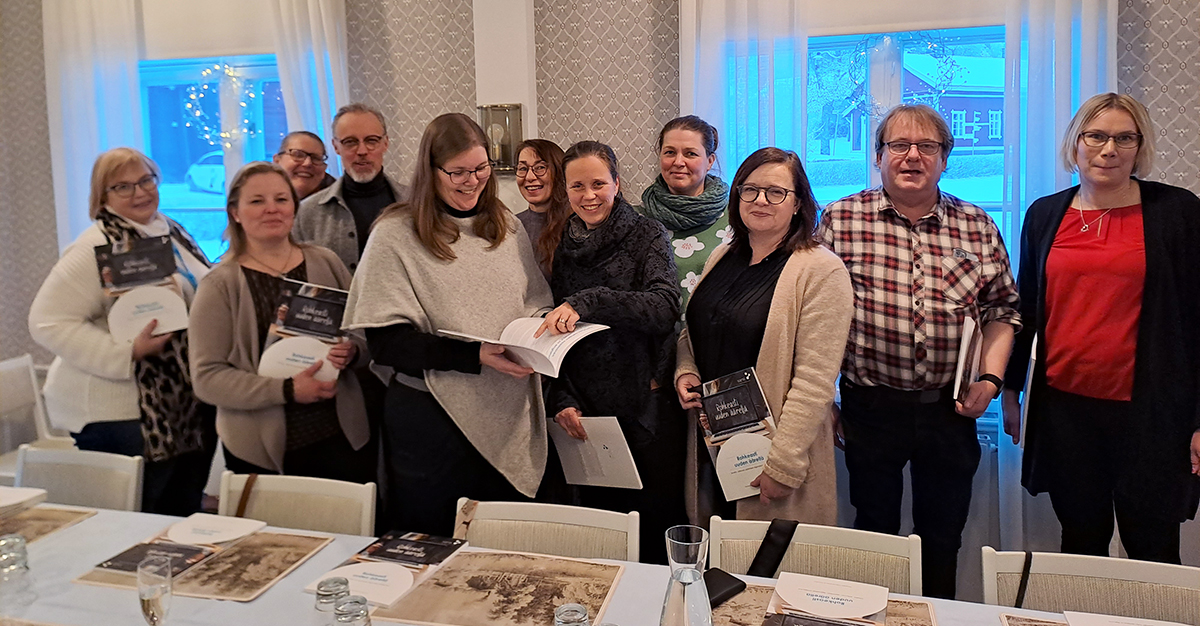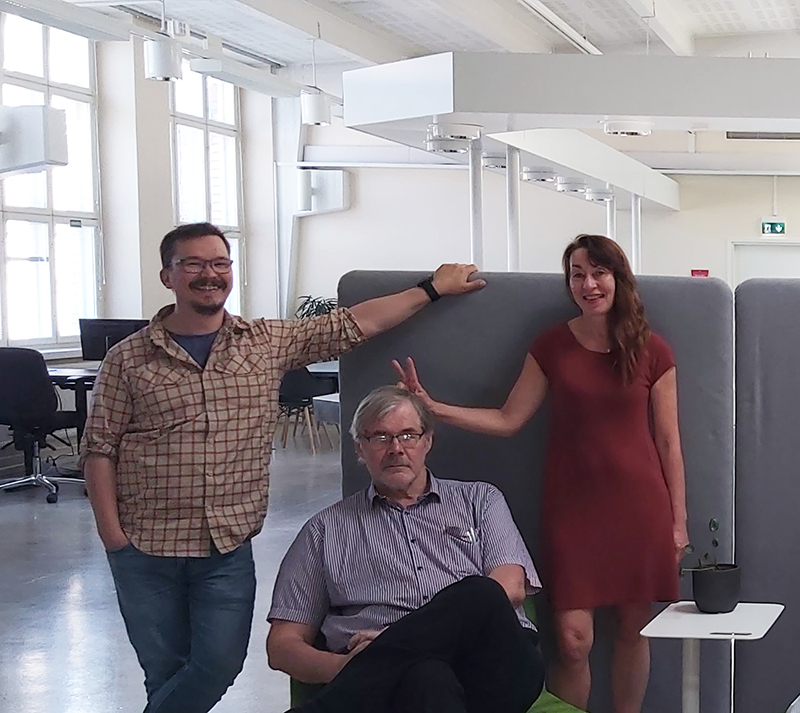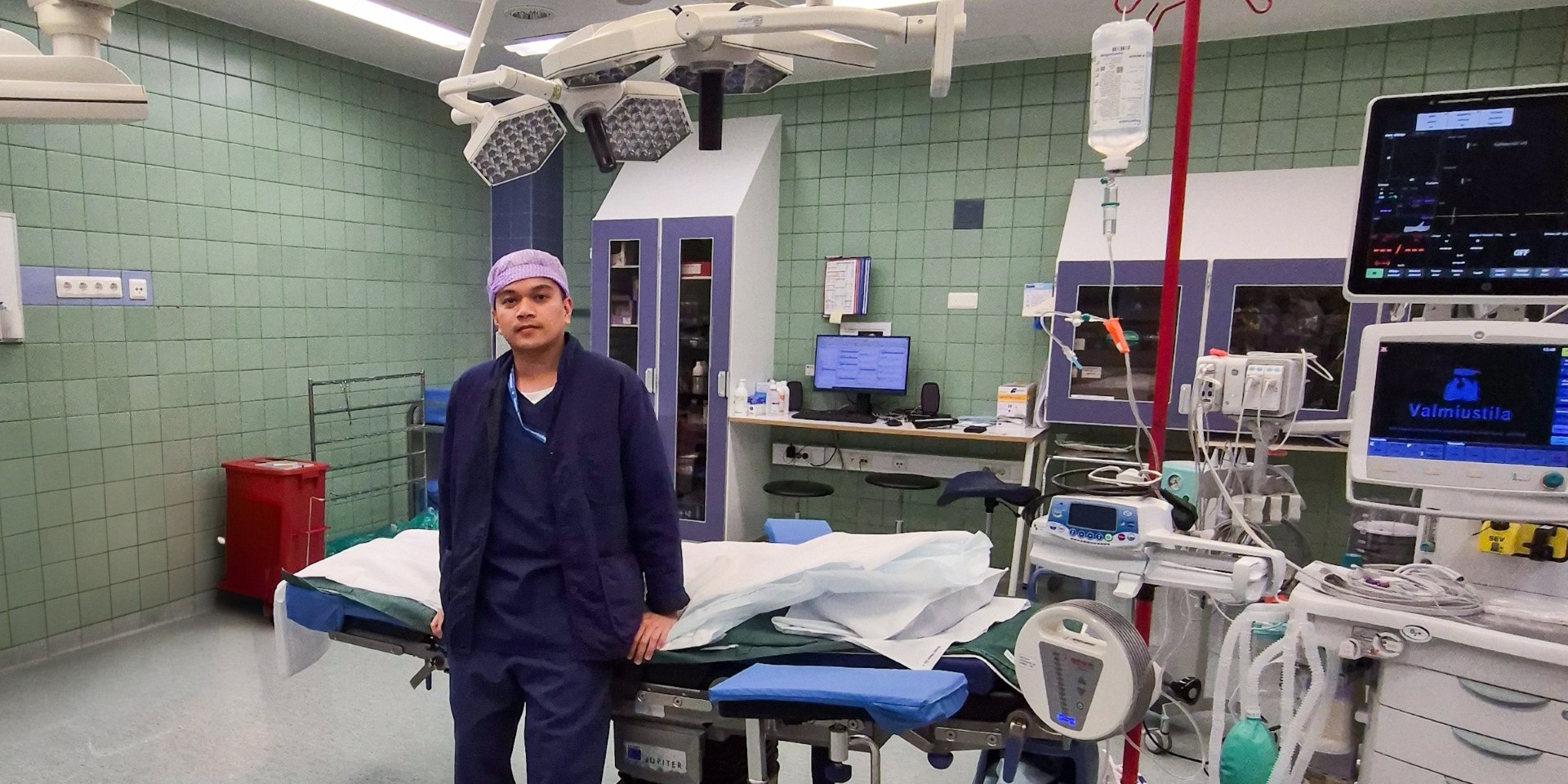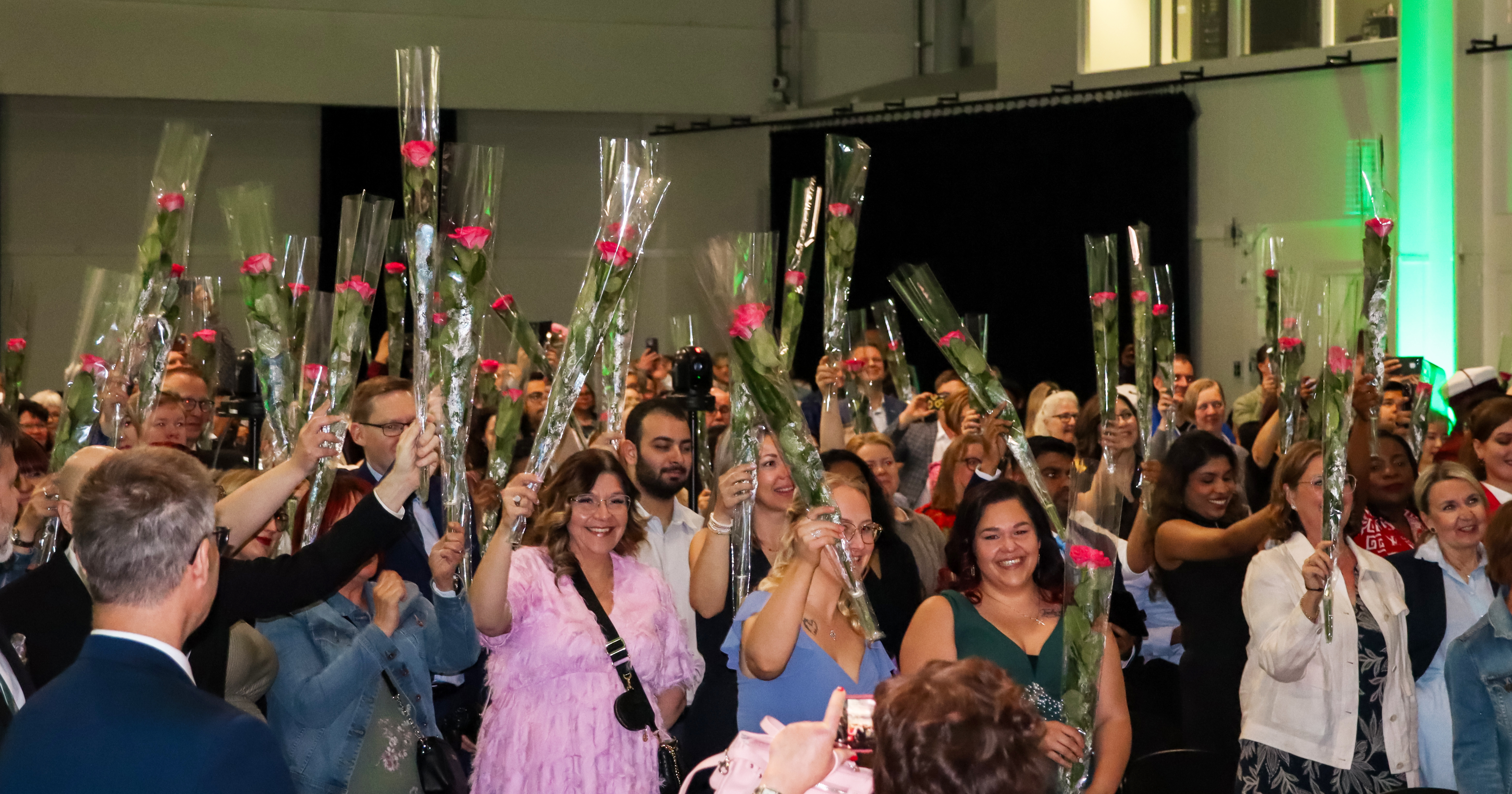Developing online nonstop courses: from impossible to possible
The mission of Digitaaliset kärkijoukot project organized by Continuing Education has been to jointly develop pedagogical capacities for online tutoring and teaching and to create new nonstop courses. The experience has been positive.

Jatkuvan oppimisen digitaaliset kärkijoukot participants were given recent publications during a joint training session. Milka Vahtoranta, interviewed in the article, is in the middle.
A few years ago, SAMK put together a group of experts from different fields who were interested in the many possibilities of online learning. This group is called Jatkuvan oppimisen digitaaliset kärkijoukot.
Initially, training sessions were organised to introduce the participants to various technical solutions, among other things. Once they were familiar with the tools, they started to design nonstop learning courses.
– This is where peer-to-peer collaboration came in, which was really valuable. There was a group of pedagogues who assessed how you manage a potentially very large group, how you give feedback, how you guide the student, says Teemu Santanen, a lecturer who took part in the project.
Studying strength of materials nonstop online
Santanen conducted an online pilot of the strength of materials course during the project. The course had about 200 students.
He says that teachers of mathematics were struggling with similar issues: how to do mathematical tasks online or how to get variation in the tasks.
Santanen has received good feedback on the course. Some of the students have found the method of learning to be a good fit, while others have expressed a desire for more traditional teaching. He says that classroom teaching also has its place and believes that in the future different teaching methods will be used to meet different needs.
– It is good to be prepared, as we do not know what education will be like in 2030. In the future, there will certainly be more nationwide online learning. I believe that quality courses will be able to compete, says Santanen.
Creativity is key
Milka Vahtoranta, a lecturer at SAMK, became interested in taking part in the project after hearing a rumour that a project to develop nonstop online courses was being planned. Vahtoranta’s course was about business accounting and financial reporting,and the online pilot attracted more than 400 registrations.
Vahtoranta believes that the course is well suited to the online environment.
– As this is perceived as a difficult course, students often delay taking the course. Once well structured online, you can go through the course at your own pace.
Vahtoranta found it particularly challenging to measure students’ knowledge and skills and wanted to make sure the measurement is of high quality. Thus, she put a lot of time and effort into planning it.
Vahtoranta sees digitalisation playing an even greater role in the future. The world of work is changing all the time, so naturally teaching has to change too.
– But I hope that in the future we will not just teach the masses. In the future, we will perhaps do things that require even more interaction in classroom teaching, and perhaps combine these teaching methods. I hope that the encounters will continue.
According to Vahtoranta, anything is possible if you use creativity.
– And you have to think outside the good old box. I’ve often wondered why I didn’t do this ten years ago, she laughs.

Jatkuvan oppimisen digitaaliset kärkijoukot project
The project involved training days and teacher-led development work, where teachers developed at least one of their own courses into a nonstop course. The courses were open not only to SAMK students, but also to CampusOnline (at campusonline.fi) and Open University students. The group of participants also shared their knowledge with their colleagues. At the same time, experiences were sought which could be used as a basis for similar activities in the future.
Teemu Santanen, interviewed in the article, is pictured on the left.


